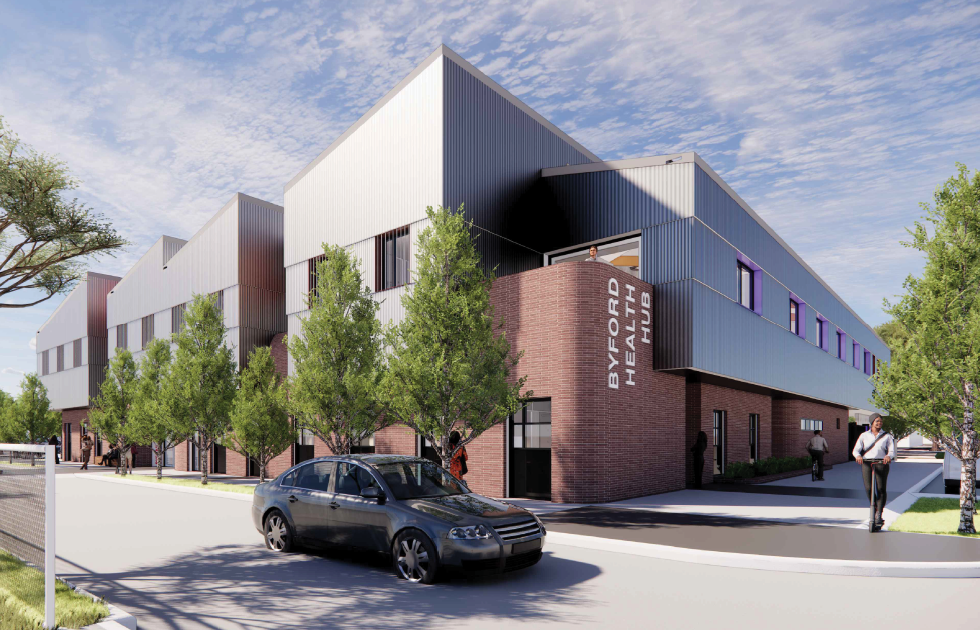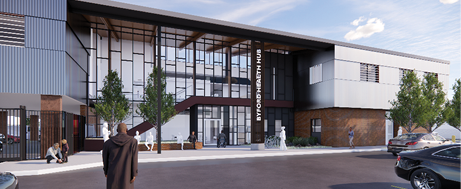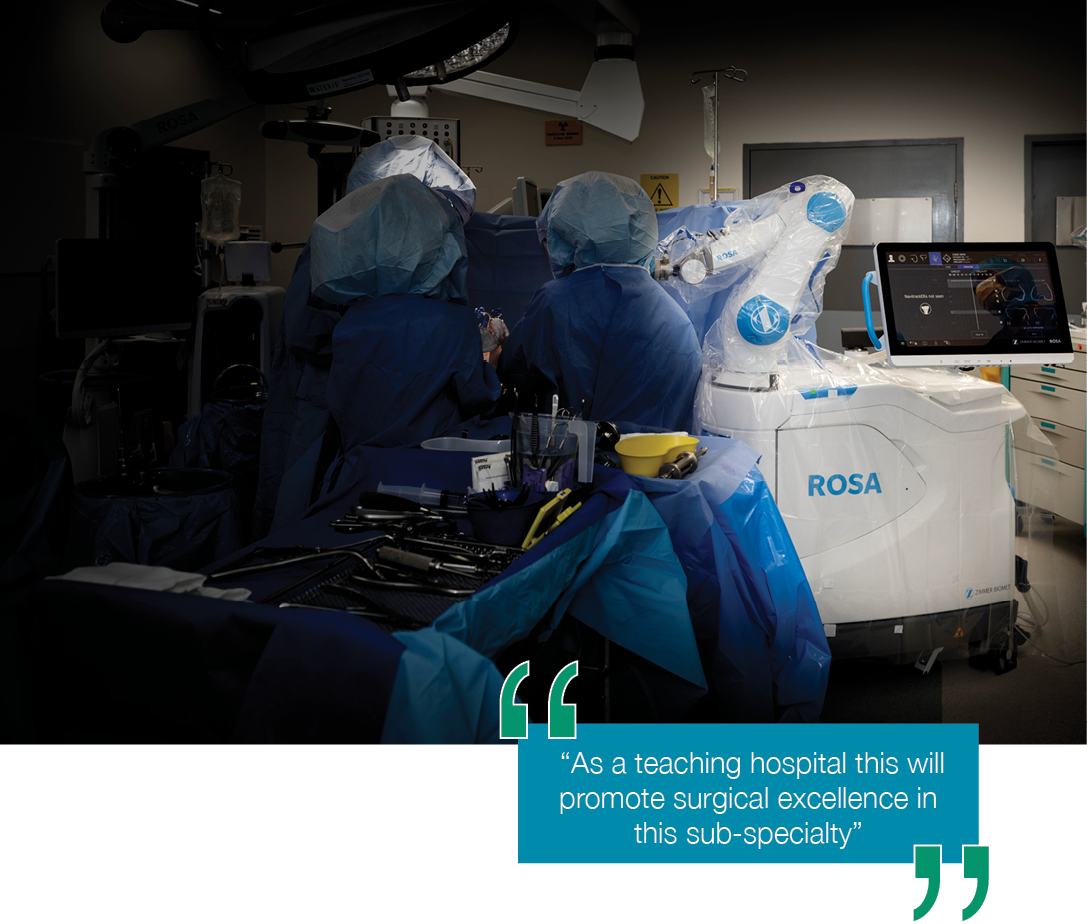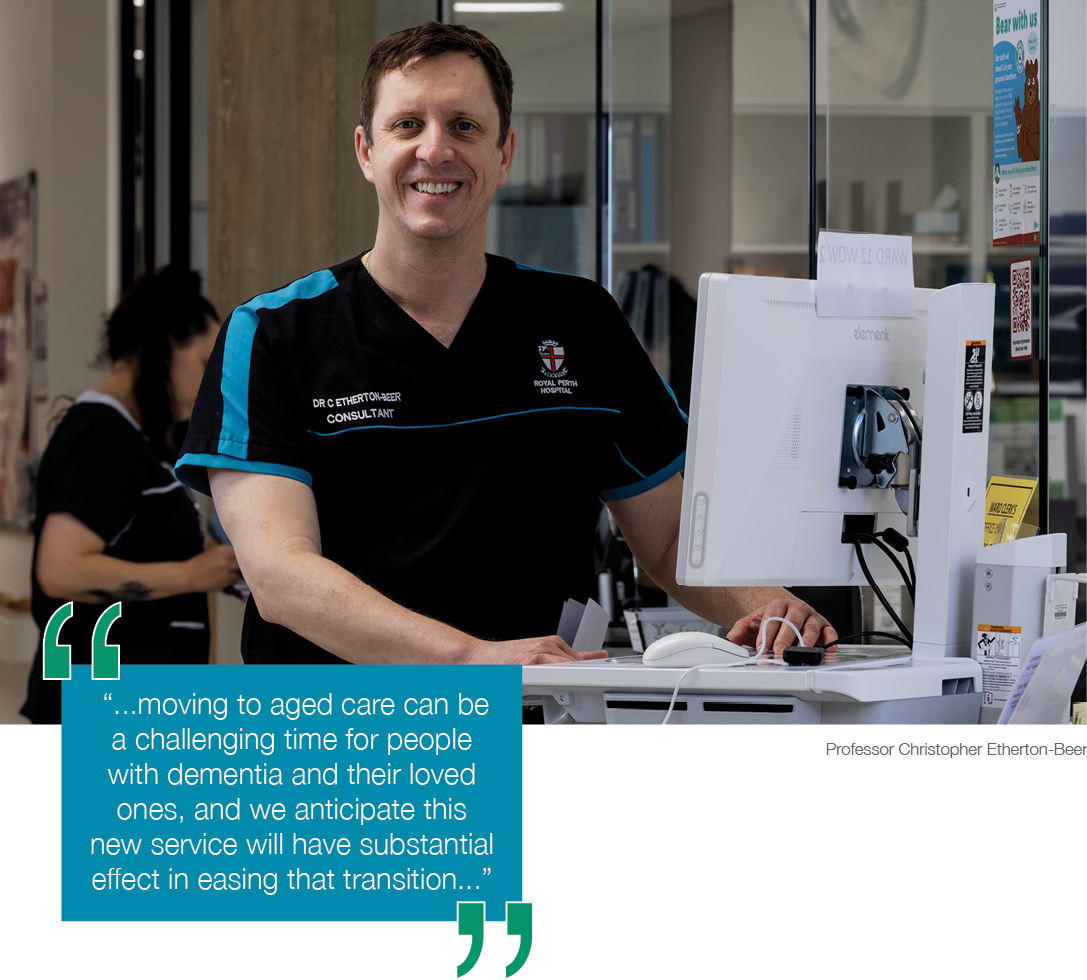A better tomorrow
Building health and community at Byford and Bentley
Two major infrastructure projects – Byford Health Hub and Bentley Surgicentre – are progressing and play a key role in meeting our community’s growing needs.
In January, EMHS officially acquired the Byford Town Centre site for the $42.2 million Byford Health Hub, which will be located within walking distance of the future Byford Metronet station.
Site preparation was completed in May, with main construction on the 2-storey, 3,000 square metre building scheduled to begin in the late 2025 calendar year.
Throughout the financial year, we worked with the Department of Finance and the architect to design a purpose-built space that will support core services while also offering flexible areas.
The adaptable design will allow the hub to evolve and continue meeting the changing needs of the community.
Scheduled to open in 2027, the hub will be operated by EMHS and offer a mix of private, not-for-profit and WA Health outpatient services.
It will bring primary, community, social and specialist health services – including child community health, maternal care, paediatrics, allied health and other specialist services − closer to home for residents of the Shire of Serpentine-Jarrahdale and surrounding areas.
An integrated service delivery charter has been developed to ensure services are connected and streamlined for the people using them.
To support culturally informed planning, the Byford Health Hub Aboriginal Advisory Group, nominated by Traditional Owners of Gnaala Karla Booja, was established to provide cultural guidance, while service and operational planning is underway with input from clinicians, Traditional Owners and the local community.
Meanwhile, the project definition phase for the $167 million Bentley Surgicentre is nearly complete.
The surgicentre will boost EMHS’ capacity for elective surgery demands and ease pressure on Royal Perth Hospital so it can focus on unplanned and complex surgery.
It is set to include 6 surgical theatres, 2 procedure rooms, a 24-bed surgical ward and a central sterilisation services department.


Technology and innovation: Robots in health care
Technological advances have led to robots enhancing our health care in different roles and areas.
In May, Royal Perth Hospital (RPH) added a million-dollar robotic surgical assistant (ROSA) to state-of-the-art equipment available to surgeons for knee surgery, under a 4-year agreement with global medical technology company Zimmer Biomet, which required no capital outlay by RPH.
Owned by Zimmer, the ROSA robot is available to accredited surgeons as a tool during total knee arthroplasty, or knee replacement surgery, and has proven an excellent adjunct since its introduction.
ROSA does not perform the surgery but assists the surgeon by providing real-time data and guidance to enhance precision, aiding the surgery and allowing the surgeon to make complex cases more technically feasible.
The ROSA Knee System is made up of 2 units which sit either side of the operating table — a robotic unit with an ‘arm’ and an optical unit, both with touchscreens.
Software modules will also be added to expand the robot’s capability to unicompartmental knee arthroplasty (partial knee replacement), shoulder arthroplasty and total hip arthroplasty (hip replacement surgery). Surgeon training will be conducted for the new uses.
RPH Coordinator of Nursing – Perioperative Services, Kerry Hodgkinson, says ROSA allows safer and more accurate surgery.
“As a teaching hospital, this will promote surgical excellence in this sub-specialty,” Kerry says.

A step forward in dementia care
A new hospital-to-aged-care program at Bentley Health Service (BHS) is reshaping the way we care for elderly patients living with dementia.
The Hospital to Aged Care Dementia Support Program began at BHS in April as a 12-month pilot program.
It is part of a national initiative aimed at improving outcomes for older people with dementia who are at risk of delayed hospital discharge.
The program supports the patients to successfully transition into residential aged care. It also provides support and training to families and carers and hospital and aged care staff.
BHS staff work with Dementia Support Australia, which is delivering the program nationally for the Australian government.
Professor Christopher Etherton-Beer, who is leading the BHS pilot program, says it is a step forward in dementia care.
“We know moving to aged care can be a challenging time for people with dementia and their loved ones, and we anticipate this new service will have substantial effect in easing that transition process,” he says.
EMHS is proud to be a dementia-friendly health service provider.


